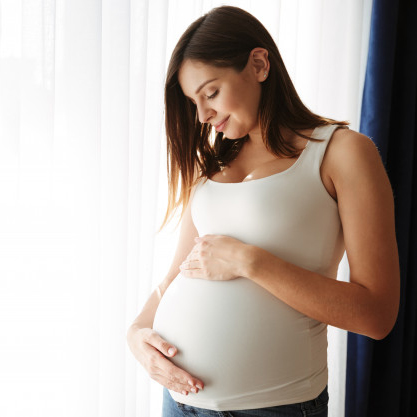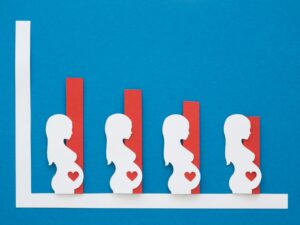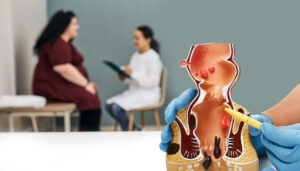Pregnancy
Importance of Nutrition before, during and post pregnancy
Maintaining a healthy balanced diet is crucial for sustenance of optimal health throughout life, and this becomes even more important for women of child bearing age. Adequate nutrition lessens the risk of developing congenital abnormalities and ensures a safe pregnancy and healthy environment for both the mother and the baby.
Whereas, on the other hand, poor nutrition can lead to several complications with pregnancy such as:
- Pregnancy loss
- LBW (Low birth weight)
- Premature birth
- IUGR (Intrauterine growth restriction)
- Baby born with congenital abnormalities or is in general, sickly
- Development of chronic illnesses later in not only in the child’s life, but also perhaps even in the mother’s.
- Death of the mother or child (Rare, in severe cases)
A pregnancy diet helps reduce the probability of developing conditions that can affect pregnancy such as obesity, Diabetes and high blood pressure.
Therefore, maintaining a nourishing diet before and during pregnancy helps in protecting both the pregnant mother and her developing child from immediate and long term health complications.
Need Consultation
Quickly Book an Appointment.

Importance of nutrition before pregnancy
Good nutrition is paramount, especially prior to conception and during the first 12 weeks of pregnancy (early stages where the woman may be unaware of her pregnancy). Planning a pregnancy is an excellent opportunity to maximise a woman’s health through wise dietary choices and following an overall healthy lifestyle.
One should try to achieve a healthy weight before conceiving through good nutrition and healthy eating practises. Eating a nutritious diet before conceiving is crucial since a woman’s nutritional status during pregnancy depends on the availability of nutritional reserves (stores of certain micronutrients such as iron and calcium that have accumulated in the woman’s body due to prior consumption of foods rich in those micronutrients) which offer necessary support to the developing baby especially during the first trimester (3 months) when the development of brain, lungs, heart and other vital organs is initiated.
Supplementation with folic acid 2-3 months prior to conception, throughout pregnancy and during the first month after delivery or as long as the doctor deems fit, along with daily multivitamins consumption is also key for a healthy outcome of pregnancy.
Strive to incorporate a healthy diet with food choices from 4 major food groups such as :
- Milk and Milk products
- Meat or Meat alternatives
- Colourful fruits and vegetables
- Seeds and nuts
- Grain products
This along with adapting a regular moderate exercise schedule is very helpful not only for before conception, but also for during and after pregnancy.
It is also important to reduce the exposure to potentially harmful substances such as teratogens present in pesticides, smoking, alcohol, drugs etc which can cause problems in the development process of the unborn baby.
To reduce the risk of any complications to the mother and the unborn baby, it is important to seek medical advice and to screen for health conditions in both the parents before actually becoming pregnant. This will ensure that the mother is in the best health before conceiving and will assure the best possible outcomes for both the baby and the mother. Therefore, the time right before the woman’s first prenatal clinic appointment is the most crucial to the foetus’s development.
Importance of nutrition during pregnancy (Prenatal care)
You must have heard of the popular idiom “Pregnancy means eating for 2”, but what does eating for 2 really mean? Does it signify that you are allowed to eat double the amount of your usual intake during pregnancy? Absolutely no. For healthy development, the child requires only the right amount of nutrients from you, which doesn’t mean you need to double the amount of consumption during pregnancy.
In fact, consuming in excess during pregnancy can have negative consequences such as:
- Difficulty in reducing excess weight gain post delivery
- Increased risk of gestational diabetes which leads to larger babies
- Increased risk of high blood pressure, a symptom of preeclampsia which can result in damage of organ systems.
In truth, during the first trimester, there is no need for additional calories, whereas in the case of 2nd trimester, there is an additional need of 340 calories followed by an additional need of 450 calories in the 3rd trimester. Intake of calories will depend on whether the mother is overweight or underweight and what is the final weight goal.
Also, key importance should be given to the type of calories being consumed. One should try eating from a variety of food groups as mentioned above and limit or restrict calories deriving from junk food and sugar treats.
Adequate consumption of fluids is also important for the mother as well as the developing baby. Minimum 10-12 glasses of water or other fluids are recommended such as :
- Water
- Milk
- Fruit juice
- Ice tea and Hot tea
- Soups
Supplementation with a key few nutrients that needs to be paid extra attention include:
- Folic acid : Helps prevent neural tube defects and other pregnancy complications.
- Iron : If the blood reports suggest low iron levels, doctors may prescribe iron supplements along with consuming a diet rich in iron to prevent anaemia.
- Calcium : Necessary for the development of baby’s bones and teeth. In case of deficiency, additional calcium supplements may be suggested apart from consuming a calcium rich diet.
- Vitamin D : Necessary for healthy bones, teet, skin and eyes. Vitamin D supplements may be suggested in case of deficiency along with advice to get exposed to morning sunlight and consuming fortified dairy products such as milk.
- Prenatal multivitamins : Contain a combination of Folic acid, Calcium, Vitamin C and other vitamins.
It is important to note that these supplements should go along with consumption of a balanced and healthy diet and not as a substitution for healthy eating.
Mild to moderate exercise is recommended and well tolerated.
Therefore, health care during pregnancy can be defined as a multifaceted program involving timely medical visits, prenatal testing and screening for infections and certain genetic medical conditions where appropriate, managing any existing maternal illnesses, recommending the right pregnancy diet and exercise, and taking any other special considerations necessary and important for ensuring a healthy pregnancy outcome.
Importance of Postpartum and postnatal care
Whilst most people only pay attention to pregnancy care for the duration of 9 months, postpartum care of the mother and postnatal care of the newborn child is equally just as important.
The postpartum duration is defined as a period lasting between 4-6 weeks post delivery of the new born child wherein the nursing mother goes through several physical and emotional changes whilst still learning to take care of her newborn. Postpartum care should involve early detection, prevention and elimination of any health complications, immunization, breastfeeding counselling, getting proper rest, adequate maternal and child nutrition and appropriate vaginal care.
The nursing mothers might feel irritable, anxious, indecisive and prone to sudden mood swings post delivery. Some women may also experience depression which can be continuous and so pronounced that it disrupts their normal function (Postpartum depression). Early diagnosis and treatment in such a case is very important for the overall well being of the mother.
Food & Wellness | Pregnancy Care Programme
At Food & Wellness, the diet plans are tailor made and customised by an expert panel of Dietitians to ensure that the progression of any existing medical conditions are slowed down and overall health parameters are gradually improved over the course of time.
Through the Food & Wellness Pregnancy care program, we aim to provide supplemental nutritious food suggestions adjunct to good health care during such critical periods of growth and development in order to improve the health status of the mother and prevent any occurence of health issues through holistic management and In detail discussion of Dietary and lifestyle habits along with scientific analysis of blood reports.
The program includes provision of easy to follow and flexible dietary and lifestyle recommendations with key emphasis on suggesting a variety of food options to break the cycle of meal monotony.
Post conclusion of the program, Maintenance pregnancy diet plans are assigned to encourage adoption of healthy eating principles and of inculcating a nourishing and healthy lifestyle, all of which are taught during the course of the program.
This advocates and ensures that the individual remains healthy not only during this crucial period but also throughout life.
Do you want to get the best diet and nutrition for health and wellness during your entire pregnancy journey? Get in touch with us.

Let's get started with treating your condition...
At Food & Wellness we believe that every individual is different and needs special attention. We adapt our programme to your existing lifestyle and try not to change anything drastically so you can easily transition. Over a period of time we ensure results and help you restore your health.
Pregnancy Articles

Fertility-Boosting Foods: What to Eat to Conceive
Embarking on the journey to conceive? Nutrition plays a pivotal role. Dive into the world of fertility-boosting foods. Packed with essential nutrients, these foods nurture reproductive health, paving the way for a successful conception. From vibrant fruits and vegetables to omega-3-rich fatty fish, discover the science behind these dietary powerhouses and how they can optimize your fertility journey. Start nourishing your body today for a brighter tomorrow.

“Post-Pregnancy Hemorrhoid Relief: Gentle Remedies for New Moms”
New moms experiencing post-pregnancy hemorrhoids can find gentle relief with a few simple strategies. Prioritize good hygiene using fragrance-free wipes or a warm sitz bath. Choose loose-fitting, breathable underwear to minimize irritation. Boost fiber intake with fruits, vegetables, and whole grains to soften stools and prevent strain. Stay hydrated to maintain soft stools and ease discomfort. These gentle remedies aim to alleviate post-pregnancy hemorrhoid discomfort without causing additional stress to new moms.

FASD: Unseen Challenges Impacting Our Contemporary Society
Fetal Alcohol Spectrum Disorder (FASD) remains a silent epidemic, affecting approximately 1% of the global population. This complex and lifelong condition arises from prenatal exposure to alcohol, causing a spectrum of disorders with devastating effects on physical, cognitive, and behavioral aspects. Despite its prevalence, FASD often goes unnoticed, leading to challenges in recognition and diagnosis. This blog explores the intricacies of FASD, delving into its causes, symptoms, and the profound impact on individuals and society. Unmasking this silent epidemic is crucial, as it extends beyond affected individuals to families, caregivers, and communities. Understanding the emotional, social, and economic implications, as well as strategies for early identification and support, is essential in breaking the silence and fostering empathy for those navigating the challenges of FASD.


